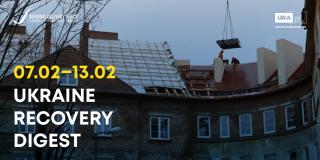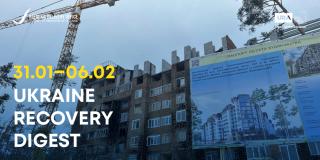By comparing laws and practice, one can easily identify and repeal legal provisions that lead to corruption in the land sector.
Major reasons for a worsening investment climate in Ukraine include overwhelmingly corrupt land relations, because every investment project in the real economy usually begins with procuring land or modifying its intended purpose.
Over the past decades, the state has created dozens of overly bureaucratic and corrupt practices, and the acquisition and exercise of land rights by business owners and ordinary people has become conditional on the "goodwill" of not-so-righteous bureaucrats, even where there is no point in doing so.
This intervention is technically quite legal, and laws concerned have brought to life an extensive system of land authorities with a large army of bureaucrats.
The task of making them all righteous overnight is too optimistic. But can one quickly repeal obtrusive rules? Yes, and an option has already been put forward.
Careful analysis of land laws has shown that legal rules harmful for people and businesses can be conventionally grouped into several categories.
12 ways of interfering
Ukraine can be positively stated to be among the world leaders in putting up various administrative barriers during the creation of land management documents.
Currently, the government can intervene in land management in twelve different ways, from the requirement that the designer should have a special degree and certificate to approvals, expert examinations, and environmental assessment.
Our government is using virtually every practice known in Europe to interfere with professional activity, and the only way to regulate land surveying, which is common in European countries, but not applied in Ukraine, is professional liability insurance.
However, practically all forms of government intervention in land management pursue the same noble objective — "ensuring that resulting documents meet the requirements of laws, regulations, standards, and rules."
As a result, government authorities repeatedly "audit" one and the same thing, and the responsibility of "auditors" is diluted to the extent that improper bureaucrats at licensing authorities can hardly be held to account for manipulations with requirements.
Ukraine has practically no single practice of reviewing and approving land management documents. Instead, "local requirements" to the package and substance are widely set, as perfectly illustrated by a pilot project of extraterritorial authorization of land management documents launched under a resolution of the Cabinet of Ministers in 2016.
It showed that the comments of "experts" who were to approve land allotment plans were mainly based on conflicts arising out of inconsistencies between departmental instructions and laws.
Their comments mostly refer to technical elements of design.
The problem is so obvious that even the inability of SSGCC to create a consistent approach to the review and authorization of documents by its territorial bodies is surprising, because land allotment plans that are identical in content, package, and format often draw both positive and negative assessment and varying sets of "comments."
State examination of land management documents is the most striking of obsolete and blatantly corrupt forms of government control.
In practice, this type of examination has nothing to do with the quality of documents, because laws also require a few more audits of the same documents. Moreover, by experts whose qualification requirements are much higher than those for state examination experts.
In addition, land management documents are also subject to a compliance review by the authorities that approve them.
The bureaucrats of licensing authorities themselves often treat state expert examination not so much as quality control of design solutions, but as a rent-seeking tool.
They do not mind "ping-ponging" documents for a long time thinking up all kinds of comments on their content and format.
As a result, the "the cost of authorizations" is included in the price of land management documents paid by the customer and recently has often exceeded half the official value of work.
Therefore, multiple audits of land management documents must pass into oblivion.
The government should check documents once, but effectively–when entering information into the State Land Cadastre, where it can verify not only formalization of documents, but also the existence of "overlaps" in the Cadastre or any other technical issues.
(De)centralization
Central problems in managing state-owned land resources have long included an over-centralized nature of these functions.
Actually, local government authorities now control only about 1/10 of non-privatized land.
This not only slows down community development and conflicts with the internationally recognized principle of local self-government, but also produces losses for the state.
The practice of land management through SSGCC is a stellar example of an absurd situation where public expenditure on public administration is much higher than its rewards.
For example, according to the "SSGCC Public Report for 2017," the grant of lease of agricultural land by this agency produced as much as UAH 118.7 million in local budget revenues, while about UAH 1 billion is spent to maintain SSGCC.
That is, if local government authorities controlled the same land themselves, even as ineffectively as not to receive a penny in rent, taxpayers would still gain by saving much more on SSGCC maintenance.
Scaring investors away or getting them into schemes
Can you imagine that a change of the intended purpose of part of your garden should be subject to authorization by the Verkhovna Rada? Or the Cabinet of Ministers? But that's the case right now.
This puts artificial restraints on access to land for individuals and businesses, creating a situation that either scares investors away or pushes drives them to rely on schemes.
The Land Code (Articles 20, 81, 82, 151) is the "champion" by the number of such rules.
Today, the Verkhovna Rada has to authorize the change of the intended purpose of especially valuable land (the so-called "especially valuable" soils account for more than half the area of some regions), and the government — the land used for nature reserves, other nature conservation, historical, and cultural purposes.
However, this brings no disaster in practice, because the intended purpose is modified even though the past four convocations of the Parliament have not adopted a single (!) decision on this issue.
Why? Because schemes have long been in place to bypass the law. "Soil surveys" are heavily practiced to produce an opinion that such soils are not "valuable."
Notably, this does not negatively affect society, so the rule is a typical anachronism.
This is an example of a legal rule that looks very proper to the average citizen, but in practice creates huge problems for business owners and encourages rampant corruption as land management decisions are made.
As concerns protected territories, the above provision does not protect them at all, because it is a very common (if not dominant) situation when land plots within such territories… officially are not categorized as land designated for natural reserves, any other nature conservation, historical, or cultural purposes.
So, their protection calls for abolishing the extinct rule of the government's authorization and, instead, introducing a rule where the new intended purpose of such plots should not affect the special protection regime of their use within the nature reserve territories and assets, as well as land under cultural heritage monuments.
Three more rules directly slow down the inflow of foreign investment into Ukrainian economy.
One is the need to have CMU authorize the sale of state- and community-owned non-agricultural land to foreign juridical persons.
The other two put significant constraints on the acquisition of non-agricultural land by foreign individuals and juridical persons outside populated areas for construction (they can only do this if they own real estate on such plots).
These rules are quite easy to go around by having a Ukrainian juridical person buy a plot and then sell it to the foreign one.
However, many foreign public companies find it unacceptable to rely on such schemes, so it is not uncommon for them to give up investment plans for the construction of production and other facilities in Ukraine.
Another problem is that agricultural business is forced by hook or by crook to procure agrochemical certification of land.
But it isn't such a great secret to share that, instead of being a guarantee against soil depletion, this is yet another corrupt practice of "trading" in pseudo-licenses.
Why not hit a "deal" with a person who is making an agrochemical certificate for you so that he or she puts down characteristics that are beneficial to the customer? How can you control who took the samples and how? Unfortunately, these are rhetorical questions.
However, soil depletion is one economic effect of the long-term moratorium, where users of agricultural land are mainly tenants, interested in maximizing their profits during the lease term.
The land owner, on the other hand, is primarily interested in protecting the land from depletion.
What can be done?
Today, we should say a final goodbye to the archaic and overly bureaucratic procedures that unscrupulous bureaucrats have fed on for decades.
Ordinary people and businesses should be given an absolutely simple and clear procedure for accessing land resources.
Land decentralization should be firmly completed. Unnecessary licenses, duplicated audits of land management documents should be done away with, and information from land management documents should be categorized as public, open, and publicly available.
Professional liability insurance for land management contractors should become an alternative to control by the government;
All this combined will dramatically reduce the cost of work and duration of land management procedures, minimizing the risks of bribery and corruption.
Multiple reorganizations of government authorities for land resources have demonstrated well that it does not help to only change staff.
By remaining intricate and containing a bunch of archaic and meaningless bureaucratic procedures, enabling bureaucrats to manipulate requirements to design documents, land laws themselves will turn the formalization of land title for individuals and businesses into nine circles of hell.
Draft Law No. 2194 introduced to the Parliament in October 2019 simplifies land relations by very accurately identifying the most corrupt articles of Ukrainian land laws and proposing to get rid of them in just a few seconds that the ballot takes.
The Draft Law is to be discussed by the Verkhovna Rada in the coming weeks.
Unless it is enacted, changing the situation in land relations, restoring the trust of people, businesses, and communities in the government and, most importantly, waging a genuine war on corruption will all remain unattainable dreams.



